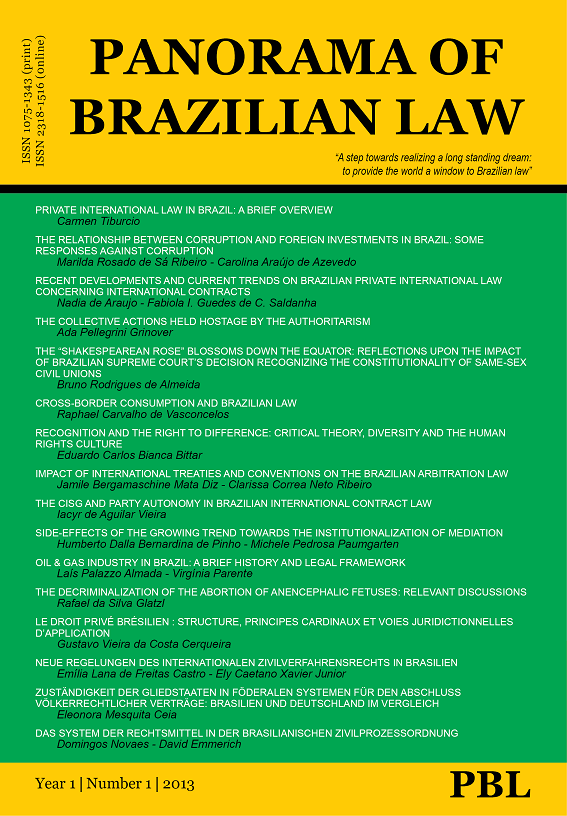THE DECRIMINALIZATION OF THE ABORTION OF ANENCEPHALIC FETUSES: RELEVANT DISCUSSIONS
Abstract
After eight years of endless discussions about the decriminalization of the abortion of anencephalic fetus, on April 24, 2012, the claims contained on the Allegation of Disobedience of Fundamental Precepts n. 54/2004 were finally deemed relevant by the Brazilian Supreme Court, and the long-awaited therapeutic discontinuation of such pregnancies was no longer punished under the Brazilian Penal Code. This decision was upheld as a victory of those who believe that the right to life has no absolute character, nor is etiologically superior to other fundamental rights, like the mother’s freedom to reproductive autonomy, and the legalization of these specific cases of abortion is based on an obedience to the constitutional precept known as the Dignity of the Human Person, ideally achieved by allowing an attenuation to the immeasurable physical, moral and psychological suffering experienced by those pregnant women. The present article will analyze the civil, criminal and constitutional questions relevant to the debate, aiming to promote reflections about the pertinence of the Supreme Court’s decision inside a global context in which the valorization of a subset of human rights, especially those that concern women’s reproductive health, is being vigorously understood as of great importance.Downloads
Veröffentlicht
2013-05-30
Zitationsvorschlag
Glatzl, R. da S. (2013). THE DECRIMINALIZATION OF THE ABORTION OF ANENCEPHALIC FETUSES: RELEVANT DISCUSSIONS. PANORAMA OF BRAZILIAN LAW, 1(1), 253–274. Abgerufen von https://www.e-publicacoes.uerj.br/pbl/article/view/34369
Ausgabe
Rubrik
Articles
Lizenz
Panorama of Brazilian Law employs Open Journal Access policies.
Authors are fully and exclusively responsible for their submissions.
Authors who publish with this journal agree to the following terms:
- Authors retain copyright and grant the journal right of first publication with the work simultaneously licensed under a Creative Commons Attribution-NonCommercial-ShareAlike 4.0 International License that allows others to share the work on a non-comercial basis with an acknowledgement of the work's authorship and initial publication in this journal and indicating if any changes were made. If you remix, transform, or build upon the material, you must distribute your contributions under the same license as the original.
- Authors are able to enter into separate, additional contractual arrangements for the non-exclusive distribution of the journal's published version of the work (e.g., post it to an institutional repository or publish it in a book), with an acknowledgement of its initial publication in this journal.

